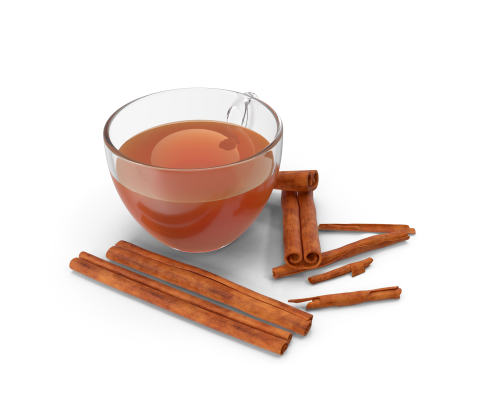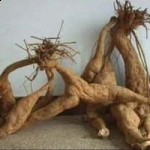

Is The Chinese Herb Kudzu the Next Cash Crop?
Some folks complain that Kudzu is an invasive weed, others call it a highly profitable cash crop. In Asia it is a medicinal herb.
 I was reading a story recently about kudzu taking over the backyard and destroying a fence on a homeowners property. Funny and sad at the same time because kudzu is well known in Asia for its healing properties.
I was reading a story recently about kudzu taking over the backyard and destroying a fence on a homeowners property. Funny and sad at the same time because kudzu is well known in Asia for its healing properties.
Michael Wyss, Ph.D., a Neuroscientist with the University of Alabama says kudzu contains healthy substances, called isoflavones. One particularly important isoflavone is puerarin, found only in kudzu. In fact, its the most abundant isoflavone in the plant. Puerarin is important because it can help control insulin for diabetics and reduce cholesterol.
The Chinese have used kudzu, a prominent Chinese herb in Traditional Chinese medicine, for centuries. It has been a proven mainstay for relieving muscular tension, reducing hypertension, dysentery and is commonly used for fevers due to the flu. Kudzu’s is full of health benefits and from my point of view could be the next cash crop.
Researchers in the U.S. investigated the effects of kudzu in rats. Female rats were given an extract made from kudzu root for two months. Another group of rats were fed a standard diet. At the end of the study, the rats given the kudzu extract had lower cholesterol, lower blood pressure, and lower blood sugar and insulin levels than the rats that ate the control diet. According to Wyss, only a very small amount of kudzu root extract was needed to achieve these results.
The study suggests that kudzu may be an effective alternative treatment that could be used in conjunction with traditional drugs to control insulin and cholesterol levels, and ultimately lower a patient’s risk for metabolic syndrome. In some cases, doctors may be able to give patients lower doses of other drugs, reducing the chance for side effects from the medication and making medications more affordable.
The root is the part of the kudzu plant or Pueraria lobata which holds the herbal medicine. It can grow to the size of a human body and is the source used in Traditional Chinese Medicine (TCM) and modern herbal products. Kudzu grows in mostly in shaded areas of mountains, fields, along roadsides and thin forests, throughout most of China and many parts of the Southern U.S.
If your looking for kudzu as an individual herb supplement you will most likely have trouble finding it. In TCM kudzu is always used in formulas or combinations with other herbs. If your looking to lower your cholesterol or balance your insulin levels using natural herbs, I suggest finding a licensed Acupuncturist who is knowledgeable in Chinese herbal medicine. If you need help finding someone in your neighborhood we are happy to make recommendations. Just call or email us.
Kudzu Related Articles:
The Southern Weed Kudzu May Benefit Alcoholics
Once used only in Chinese Medicine, Now This Southern Weed May Help Alcoholics
 Kudzu, a vine also known as Ge Gen in Traditional Chinese Herbal Medicine has been considered a weed and an invasive species in the "Deep South" for the past 50 years.
Kudzu, a vine also known as Ge Gen in Traditional Chinese Herbal Medicine has been considered a weed and an invasive species in the "Deep South" for the past 50 years.
It has also been celebrated as one of the 50 most fundamental herbs in Chinese Medicine.
While first prized for its sweet smelling flowers, it’s encroaching and invasive nature soon made it unpopular to some and a flight of fancy for others. Here in the US, poetry, books and films have been written about this vine, and it has the making of a legend in its ability to grow one foot a day and up to sixty feet a year, covering any structure, small or large. Our picture shows it eating a car.
Festivals have been planned in its honor, clubs have been formed and individuals have been known to create hundreds of baskets from its vines. In Japan and China, it is used daily in teas and consumed just as turnips would be. Traditional Chinese Herbal Medicine practitioners have used kudzu for over 2000 years to treat many diseases, including diabetes, high blood pressure and high cholesterol.
Scientists in Alabama and Iowa have reported the first evidence that root extracts from kudzu show promise as a dietary supplement for a high-risk condition that affects almost 50 million people in the United States alone, metabolic syndrome. Scientists have been seeking natural substances that can treat metabolic syndrome, which creates an excessive amount of glucose in the blood and is linked to both diabetes and obesity.
A new study evaluated kudzu root extracts, which contain healthful substances called isoflavones. Connect here for Metabolic Syndrome Study Recently, there have also been several laboratory studies conducted on mice that show Kudzu to be effective in reducing alcohol intake. A study has shown this commonly used Chinese herb seems to prevent the usual increase in binge drinking that occurs after five days of abstinence and also prevents relapse.
Extracts of various parts of the kudzu vine are said to be "helpful in treating a variety of maladies, including alcoholism and intoxication," said Ting-Kai Li, a professor in the department of psychiatry at Duke University Medical Center, and former director of the National Institute on Alcohol Abuse and Alcoholism. Considering that nearly eighty percent of abstinent alcoholics or addicts relapse within a year, the value of Kudzu in helping to treat alcoholism could make it a legend in the world of medicine.
It has been suggested that once Kudzu has been further studied, this Chinese herb has a high likelihood of replacing Antabuse, a well-known but slightly toxic medication that is currently used to treat chronic alcoholism. One researcher involved in the study Dr. Diamond said we “hope this novel compound will become an effective therapeutic agent for alcoholism.” So what was once deemed a weed by the USDA, has the potential to become a goldmine for the South. It has even been suggested that Kudzu could be used to produce the same amount of ethanol as an acre of corn, thus supplementing our current energy resources as well. Click here for a link to the studies referenced.

